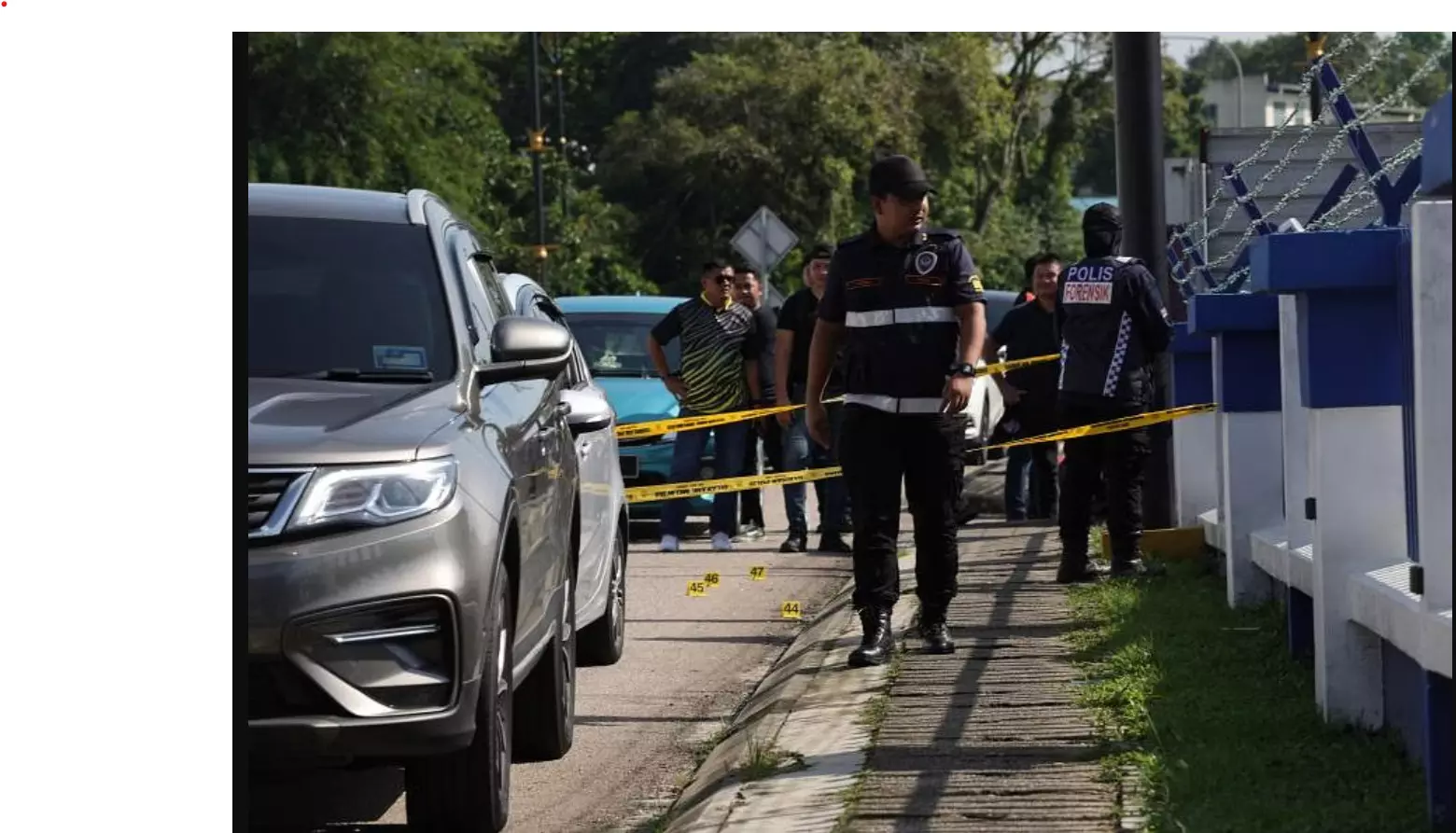Revived menace?
Despite undergoing fragmentation over the decades, al-Qaeda-affiliated Jemaah Islamiyah has suspectedly re-emerged as a threat in Malaysia, as evidenced by May 17 attack, necessitating vigilant counterterrorism efforts

Malaysia, considered a relatively peaceful country in the Southeast Asian region, was struck by an incident of terror when the hardline Jemaah Islamiyah (JI) group, in a daring attack, stormed a police station on May 17, killing two police officers in the town of Ulu Tiram in the southern state of Johor. More alarmingly, when an officer confronted the suspect, he retaliated with a machete, grabbing the policeman’s service revolver and fatally shooting another officer. Later, police raided the suspect’s house and recovered substantial incriminating material linked to JI paraphernalia. In a swift swoop, the authorities also arrested a number of JI activists thought to be complicit in the attack.
It may be recalled that JI is an al-Qaeda-affiliated group that aims to establish a hardline Islamic state in Indonesia and across Southeast Asia. At its peak in the 2000s, JI had members from Indonesia, Singapore, Malaysia, Cambodia, and the Philippines, and masterminded a series of deadly bombings, including the October 2002 attack in Bali that killed more than 200 people, mostly Australians. Some of its most prominent leaders were Malaysian, including Noordin Muhammad Top, who acted as a recruiter, strategist, and financier for the group and was also wanted for involvement in a string of attacks in Indonesia. He continued to influence a number of indoctrinated youths involved in acts of terror.
Meanwhile, more details on the terror attack are trickling in. Initially, Malaysian police suspected the incident was linked to JI and was probably an attempt to steal weapons. Five members of the suspect’s family were arrested, including his 62-year-old father, who police said was a known JI member. Malaysia’s Minister of Home Affairs, Saifuddin Nasution Ismail, appeared to backtrack on the JI connection, describing the attacker as a “lone wolf” driven by personal motivations since he rarely interacted with others.
Interestingly, a former member of JI in Indonesia, Ali Imron, told the media from a Jakarta prison that an attack by the group on Malaysian soil seemed unlikely. He suggested that JI’s profile in Malaysia did not fit the police station attack. There have never been any JI members in Malaysia who agreed to commit acts of violence like this. Before the Bali bombing, there were attacks in Malaysia, but these were committed not by JI but by Kumpulan Mujahidin Malaysia (KMM). This contradicts the claims of the Malaysian police. KMM, an extreme group directly linked to JI, carried out small-scale attacks in Malaysia in the early 2000s. Rueben Dass, a senior analyst at the S Rajaratnam School of International Studies in Singapore, observed that JI had never previously mounted attacks in Malaysia. This incident, therefore, raises concerns about the sudden emergence of terror activity in Malaysia.
As we dwell upon JI, it is important to highlight that JI was founded by Indonesians Abu Bakar Bashir and Abdullah Sungkar in 1993, with a mission to establish an Islamic caliphate across Southeast Asia. The group has historically been linked to al-Qaeda, from which it received funding and training in the 1990s and early 2000s. It has had members in Indonesia, Malaysia, Singapore, Cambodia, and the Philippines. JI was officially banned in Indonesia in 2007, leading to the group’s splintering. Some members focused on dakwah or proselytisation, while others continued to plot violent attacks. Arrests have continued across the region, with members accused of stockpiling weapons and bomb-making equipment.
According to open-source data, between 2021 and 2023, out of 610 people arrested in Indonesia, 42 per cent were JI and 39 per cent were from other hardline groups, including Jamaah Ansharut Daulah (JAD) and other pro-Islamic State groups. The majority of JI senior figures have been either executed, shot dead in police raids, or jailed.
While Malaysian militants have been key figures in JI and Philippines-based groups, there are few indications of sophisticated plots targeting Malaysia specifically in recent years, according to Judith Jacob, director of geopolitical risk and security intelligence at risk management company Forward Global. However, while Malaysia and Indonesia have not seen anything like the scale of violence of the early 2000s, attacks have not been completely eradicated, with a pattern of more opportunistic and low-level violence emerging. The attack in Malaysia remains squarely within the wheelhouse of regional Islamist militant groups—that is to say, it is a relatively unsophisticated assault.
With Islamic militants in Southern Thailand bordering Malaysia in the Malay Pattani region, Songkhla, Yala, and Narathiwat are far from being dormant, and there are stray cases of radicalisation in Indonesia too. The recent JI terror assault raises the potential for future extremist attacks in Southeast Asia, opening a new vista in terror activity. One is not sure if Zakir Naik, the hate preacher sheltered in Malaysia, is quietly indoctrinating strayed youth. The recent incident calls for abundant caution to nip in the bud any trace of terror that may threaten the region in the not-so-distant future.
The writer is a retired IPS officer, Adviser NatStrat, and a former National Security Advisor in Mauritius. Views expressed are personal



